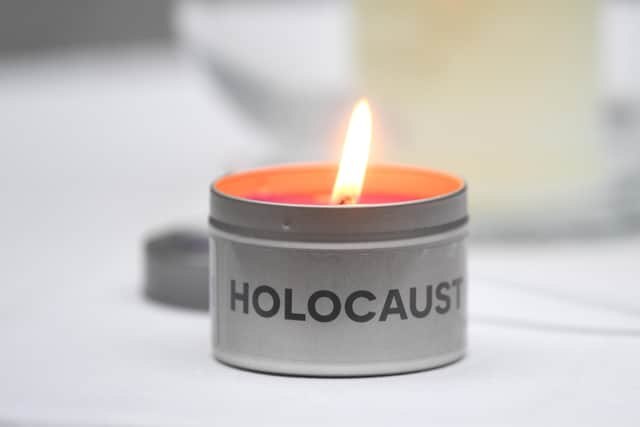Former Eastbourne doctor remembered on Holocaust Memorial Day
and live on Freeview channel 276
Dr Edward Katz was born in 1913 in Berlin and escaped the Nazi regime in the 1930s when he came and worked in a hospital in Eastbourne.
Following periods of restriction, he was granted temporary registration on June 25 1941 and worked at Eastbourne’s Princess Alice Memorial Hospital for the duration of the war.
Advertisement
Hide AdAdvertisement
Hide AdHolocaust Memorial Day is a day of remembrance for the six million Jews murdered during the Holocaust, victims of Nazi persecution and discrimination and the victims of more recent genocides in Cambodia, Rwanda, Bosnia and the Darfur region of Sudan.


Under the many anti-Jewish laws, at first Jewish doctors were allowed to provide healthcare to other Jews but this eventually moved to them not being allowed to practise medicine at all.
Some Jewish doctors managed to escape before the Holocaust and many came to the UK as refugees. In the UK from 1941 they could apply to the General Medical Council for temporary registration.
Around 4,200 doctors registered under this provision including many who had fled Nazi persecution. After the war, practitioners who had held temporary registration could apply for full registration.
Advertisement
Hide AdAdvertisement
Hide AdAround 1,000 of the doctors did this and one of those was Dr Edward Katz.
After the war he emigrated to America to be reunited with members of his family who had fled there in 1939. Dr Katz changed his name to Ernest Katz Kent and he died in New York at the age of 85.
Unlike most Jewish medical students, Dr Katz was allowed to finish his studies and complete his ‘practical year’. However, solely on the grounds of his ethnicity he was barred from receiving his diploma and officially being recognised as a doctor.
Dr Katz had to find alternative ways of proving his medical qualification. He did this by writing to the General Medical Council in 1941 to explain his situation and include his relevant certificates.
East Sussex Healthcare NHS Trust said it ‘fully recognises all those who were victims of such atrocities’ and ‘the frustrating journey that Dr Katz endured to be recognised professionally’.